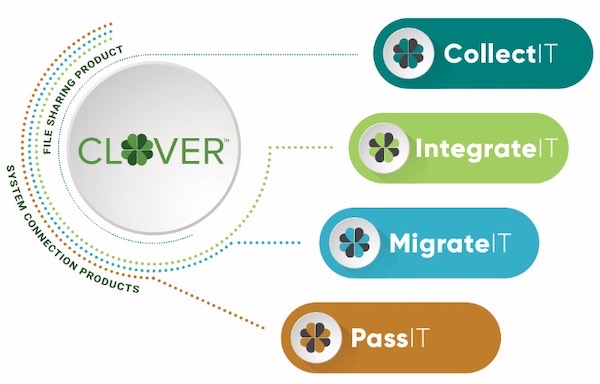Key takeaways:
- Many factors are critical for digital transformations to deliver value, but a solid architecture implemented using a pragmatic approach helps ensure that solutions can evolve sustainably as technology, business processes, and products change over time.
- Managing the lifecycles of products as complex as a car or airplane, or as simple as an O-ring seal or consumer product, is always challenging, independent of organization size or industry, requiring consideration of many processes, functional areas, and related software solutions.
- Razorleaf, a vendor-agnostic consulting firm and systems integrator focused on PLM, has grown over the past 20 years to support a variety of PLM solutions and related applications. They’ve executed more than 5,000 projects at 1,500 industrial customers and U.S. government agencies and are leveraging the knowledge gained into practical applications that improve business performance.
- Razorleaf is large enough to support global projects with technology from Ansys, Aras Corporation, Dassault Systèmes, Infor, PTC, and Siemens Digital Industries Software, and is rapidly moving to offer packaged software solutions and managed services to help customers support their complex SaaS environments.
Introduction
Digital transformation is almost always a complex process and sometimes positioned as a lofty strategic concept. The goal is to successfully evolve an organization by ensuring the transformation concept has been implemented, adopted, and continuously improved. A big part of digital transformation is the integration of previously standalone information silos. Integrating the data from these siloes helps to build a digital thread to share data from one step in a process to the next step quickly, repeatably, and securely. The other important requirement for transformation is to be able to adapt the digital thread to changes. Those changes could be almost anything; product, process, business model, customer, industry, or regulatory requirements.[1]
In CIMdata’s industrial PLM-related consulting engagements customer interest is growing in digital twin, model-based systems engineering (MBSE), mass customization, agile, test automation, and DevOps. These desired capabilities have two things in common: none are out-of-the-box (OOTB) solutions and they require multiple software solutions to work together. Enabling any of these capabilities requires a good solution design to ensure data and processes are integrated and stay current with both business processes and the underlying technologies.
To implement a digital transformation that meets expectations requires several elements. The business vision and strategy must be clear. The technology foundation is critical and has many characteristics that must be supported to ensure it can meet technical requirements and the non-technical (i.e., business) requirements. Successful implementation demands a methodology that is rigorous and proven but flexible and it must be well understood by all the stakeholders.
Transformation is hard and you need the right methodology. Many look to systems integrators to help them on this journey. You want someone with a breadth of experience, particularly on your chosen solution. Razorleaf is one such company.
About Razorleaf
Based in Stow, Ohio, Razorleaf was founded in 2000 by Mr. Eric Doubell. Razorleaf has grown over the years to become a global provider of PLM-related software and services to both industry and government. Their technology expertise spans PLM, product data management (PDM), design automation, process management, business intelligence, systems integration, test automation, and data migration. Razorleaf works with PLM/CAD platforms from Aras, Autodesk, Dassault Systèmes, DriveWorks, Infor, PTC, OpenBOM, Microsoft, Siemens, and more. According to Razorleaf, since 2000 the company has completed over 5,000 PLM and design automation projects for companies of all sizes. They are big enough to support global projects, yet agile enough to support SMBs and fast-changing projects. Two things that impress CIMdata are their OnPoint methodology and their focus on solution adoption, including the ability to deploy organization change experts.
PLM projects often have fixed budgets and schedules, requirements that usually are not a good fit with agile approaches. Razorleaf’s methodology leverages aspects of both agile and waterfall processes on enterprise PLM implementations so they can support budget and time constraints while still having the flexibility offered in agile. The agile aspects of getting working software in users’ hands quickly and incrementally improving it help foster adoption. Ensuring that implementation goals are completed on time and on budget while supporting user adoption are critical to meeting executive expectations.
Integration and Accelerator Software
Razorleaf has developed products to speed implementation and improve solution capability and value based on their experience and best practices. CLOVER, shown in Figure 1, is an integration, migration and file sharing platform. Development started in 2015 and Razorleaf now has a suite of connectors for a wide variety of enterprise systems and file repositories from major vendors including Aras, Autodesk, Anark, ITI, Dassault Systèmes, SOLIDWORKS, PTC, Infor, Citrix, Salesforce.com, Microsoft, Oracle, NetSuite, and SAP packaged as IntegrateIT. CLOVER uses SOAP or REST APIs and connects to any type of system or SaaS provider, file system, or database. PassIT supports messaging systems such as MuleSoft, Microsoft Biztalk, Informatica, ION, and Jitterbit. Since Razorleaf developed their integrations to support PLM use cases the technology is already configured via its rules engine to support PLM capabilities such as parts and BOMs, document management, change management, issue management, and project management and extend them across various enterprise domains such as engineering, manufacturing, quality, and service. MigrateIT leverages the rules engine, integrations, and job scheduling functionality to reduce data migration complexity.
Furthermore, Razorleaf builds apps on the CLOVER platform to support requirements such as packaging and exchanging product data with CollectIT Technical data packages and bid specifications are extremely useful when working with a supply chain or customer asynchronously as they help ensure that properly configured data sets are shared.

Figure 1—CLOVER PLM Job Platform Enables a Growing Variety of Capabilities
The CollectIT product creates technical data packages for customers, suppliers, and employees. It supports templates and can consolidate BOMs, CAD files, and other technical data into a package in a variety of different structures including MIL-STD-31000B to support government and model-based enterprise (MBE) requirements. What makes CLOVER so powerful is its flexibility. It understands the richness and complexity of PLM data and processes reducing the effort to create and utilize the digital thread.
In addition to CLOVER, Razorleaf also develops accelerators based on their implementation experience. Manufacturing Suite for Aras Innovator includes productivity enhancements and adds capabilities for change, training, supplier, and project management, areas that are often customized in PLM implementations. By codifying their best practices and delivering them as a packaged solution PLM solution capability and feature gaps are minimized and implementations sped up. This helps small and large companies improve efficiency and lowers cost by integrating needed capabilities into the PLM platform rather than requiring yet another software platform.
Government Business
Supporting government entities is quite different from commercial companies so Razorleaf launched a government-focused business in 2016, It is designated a small business (which can help the government entity get vendor approval), is US-based, and has security clearance. The government team has many successful enterprise deployments, often focusing on model-based enterprise transformations both in the government and in aerospace & defense (A&D). Their ability to deliver commercial PLM systems in complex and highly-governed IT environments has translated well into other industries such as transportation and high-tech.
Managed Services
SaaS is growing rapidly in the enterprise software market, and the approach has started to take off for PLM offerings. In CIMdata’s consulting business more and more companies are specifying cloud-first for any new technology acquisitions. That said, getting SaaS support for multiple applications from multiple solution providers is complex, as each provider typically only provides support to the boundary of their own technology. A systems integrator must have the skillset to bridge across application boundaries and as solutions move to the cloud the complexity will grow as on-premise solutions also need to be integrated.
Razorleaf has provided helpdesk and support to clients for many years and has expanded and formalized their managed services offering. They provide helpdesk, infrastructure, hosting and cloud services, security, and application support services including customization, upgrades, and PLM test automation.
Conclusion
As companies digitally transform they often need help. System integrators who execute transformations every day can provide the needed assistance. They develop best practices based on their experience. These best practices have a wide and deep scope from vision, strategy, and tactics to infrastructure, applications, and user support, but finding a system integrator with the right mix of best practice capability and compatibility with the industrial company can be tricky.
In its over twenty-year history, Razorleaf has successfully grown and evolved as technology has changed. They have experience in most discrete manufacturing industries and have deep experience on government and A&D programs. In addition to data and process management and automation, they also have experience in related tools such as SOLIDWORKS, DriveWorks, and ANSYS. We have followed Razorleaf for many years and talked with their customers who vouch for Razorleaf’s skills and appreciate the pragmatic approach taken to solving business problems. Razorleaf is a systems integrator large enough to support global projects that can also effectively support smaller companies. CIMdata recommends that companies looking for a system integrator to support implementation or customizations consider Razorleaf to support their requirements.
[1] Research for this commentary was partially supported by Razorleaf.







